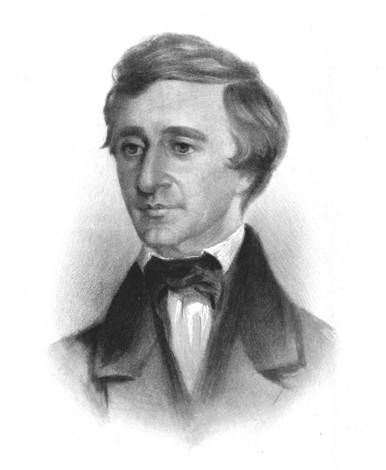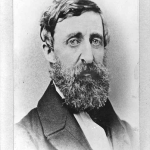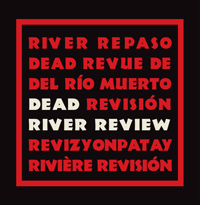By Alberon Gundim, Jr.
The nail I once hammered into the beige wall of my bedroom, at my parents’ house in Annapolis, Brazil, stayed firm and strong enough to hold a big, heavy mirror that became the ears I spoke to for a while. I had it perfectly centered to reflect my whole body from head to toes. If for some people a mirror meant nothing, for me it became the only friend I could talk to without causing more pain to the people I loved most. I held tightly to the frame on my old wall mirror, and I shouted loud to the heavens, “God help me.” Although I struggled to view my own reflection in that mirror, from that moment on, I could see three basic types of truth that marked my life forever: scientific truth, my own truth, and the actual truth.
Like a rock that fell from a cloud, scientific truth smacked me hard on the head. About eighteen years ago, I had just turned fifteen when on an ordinary weekend morning, I woke up and realized my vision seemed different. I rubbed my eyes with a tissue, blinked repeatedly, and squeezed them shut, expecting to see clearly when I opened them. I felt as if a curtain of organza covered my vision, but I did not know why. I jumped off the bed and tried to rush to the bathroom to wash my eyes. I felt dizzy, and I hit my dresser, so I sat back down on my bed. I shouted to my mother in desperation. I freaked out.
My mother ran into my room. She found me sitting down and holding onto the headboard. She moved the lampshade that I had knocked over when I tried to get up out the way. From the distress in her voice, I could tell she began to freak out, too. She asked, “What is going on?” as I tried to reach for her arms. I said, “Mom, I can’t see.” My mother grabbed me by my hands and helped me to get into the car, still dressed in my pajamas. She drove me to the emergency room right away.
Doctor Mark Zangara examined my eyes. He found many wounds in the uvea layer of the oculus. Dr. Zangara explained to us that I had uveitis, a rare disease with an unknown cause. According to the doctor, my lifestyle would suddenly change since the wound happened right at the optical nerve of the eyes. The unfortunate scientific truth said that even if I felt better with antibiotics and steroids, the scars would not allow me to see anything straight ahead of me, only to the side. Dr. Mark gave me a tight hug, fixed my hair, and told me he would direct me to an eye specialist and a psychologist to help me adapt to my new situation. I heard my mother sobbing as I slowly began to feel overwhelmed, too. The nurse brought the prescription, the paper referral, and the clinical summary for the visit. My mother and I left the emergency room. My heart broke in a thousand pieces. My mother called my father, Alberon Gundim, my sister, Heloise, and my brother, Emerson, to let them know about my situation. My mother told me they all were shocked and sad.
We arrived home. The ground seemed different under my feet and I needed strength to face my own new truth. I needed a moment on my own. I locked myself in my bedroom.
I stepped in front of my mirror and placed my hands on its frame. I wanted so much to see my face, eyes, hair, and even deep inside my soul in that mirror. I felt lost, alone, and afraid. My eyes filled up with tears. “Who am I going to be from now on?” My heart kept pumping that question over and over into my brain. I started to think about my friends and the volleyball game that would happen next week, Julia, the girl I liked in class, my Nintendo console that I got for Christmas, and how I would have to leave a regular school and attend a special one.
I started to hyperventilate, and my chest hurt. My small bedroom turned into a vast forest filled with shadowy trees, creatures’ eyes among the bushes, and long dirt roads covered by darkness that I feared to explore. I started to lose the desire to live. As I held my mirror and cried in silence, I heard someone knocking on my bedroom door. Dad came into my room. He held me in his arms and cried so loud that I couldn’t help it, I cried too. He told me that he would do anything to get my vision back. He refused to believe I had lost my vision all of a sudden. He became angry. He punched the wall, and my hats, medals, collection of cars, and everything I had hanging on the shelf fell on the floor. My mother had to intervene and calm him down.
I started using the pills and the eye drops. I suffered all kinds of pain. The antibiotics and steroids caused me to have stomach problems, such as gastritis. I could not drink milk or anything with lactose anymore because somehow I developed intolerance to lactose with the medication. I lost a lot of weight, even though the steroids caused me to become swollen. I did not want to eat, so I went from 145 pounds to 90 pounds. I also suffered psychological pain. I did not want to speak with anyone. My phone rang several times, but I did not answer it. I avoided my closest friends like Jonathan, Michael, and Jordin, who sent many messages through my brother and sister saying they missed me. I refused to speak with my teachers or anyone from school. My relatives, neighbors, and everyone else had to speak with my family to hear about me. I did not want to leave my room at all. I did not want to live anymore. Those long dark roads that I continuously beheld in my mind seemed to be my future. I could not go forward because it turned dark. I became depressed. Sadness knocked me down cruelly.
Four months later, I found the actual truth I had never imagined existed before. I had finished all my antibiotic treatment, and apparently medicine could do nothing else to help me to see again. As all the many doctors (whose names I cannot recall anymore) I visited said, I could only see partially on the side, but not in front of me. My life changed. I had to prepare myself emotionally to attend a new sign language school, my closest friends no longer called me, and my family finally adjusted to my situation.
On a Saturday afternoon, I took a nap because I felt very weak. My bedroom was cold, so I had extra blankets covering me that day. Someone rang the doorbell, and I woke up. My mother answered the door. I could hear her talking from my room. I could not recognize the voice of the visitor, but I could tell it sounded like an old lady. I heard when she requested to see me. She introduced herself as Reverend Mary Scott, and told my mother she came from the poor neighborhoods to the northwest of Annapolis. She had a dream with my home address, and according to her dream God had told her to visit and pray for a young boy who needed a miracle. When I heard that from my bedroom, I jumped out of bed and carefully went to the living room, using the walls as my guide. I presented myself. I could not see her, but I felt something special about that woman.
I invited her in, and I bowed down on my knees. I had hope at that moment. I thought, “How could that woman possibly know about my address or my condition?” She opened the Bible and read Psalm 13. I cried because those words felt like knives entering my flesh and reaching my emotions. She prayed very loud, and as she prayed, I saw flashes of light. I thought I was losing my mind.
I rubbed my eyes, and I saw my mother kneeling on the carpet with her hands close to her heart, praying. My mother did not pray much before; she thought religion belonged with fanatical people.
I whispered, “I can see you.”
They both stopped praying and looked at me with astonishment. “What?” My mother asked.
I repeated louder, “I can see you.”
She got up and screamed cheerfully, like when the people cheer during the Super Bowl. I had never seen my mother so moved in my whole life. The visitor did what God told her. She left my house satisfied. I still think about her, even though I never saw her again. She did not leave her telephone number, address, or anything else we could use to reach her to thank her better.
After I recovered my vision, I immediately grabbed my mp3 player and plugged it in to charge because I had not used it for a long time. I also called my best friends, Jonathan and Michael, who said they would come to visit me right away. I asked my mother to make fried dough, and she cried tears of joy because I had asked for food. I felt happy again.
My life slowly started to return to normal after my four-month-long struggle. I walked into my bedroom and looked at the beige wall. The nail I once hammered into it still held my mirror firmly in place. I learned that my mirror not only suited my vanity; it served also as a comfort in time of trouble. While scientific truth said that I would stay blind and my own truth said that I had no future, the actual truth spoke louder and told me hope and faith could make my life bright again. I will never forget that experience and the miracle I received.







